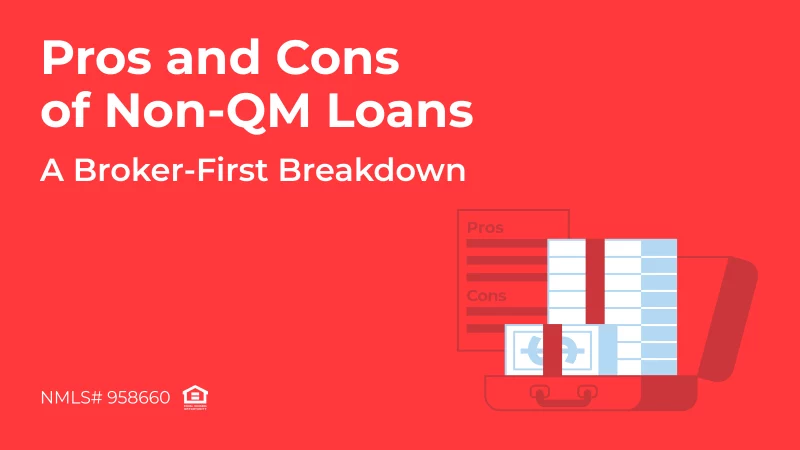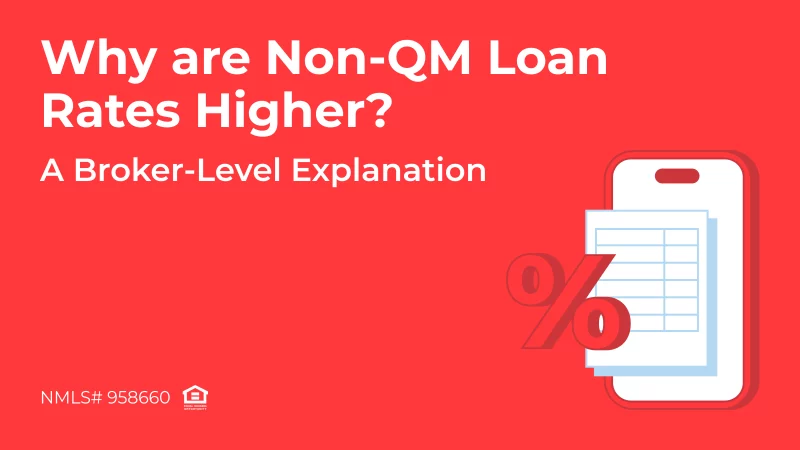
Investment property loans are crucial for anyone looking to enter the real estate investment market. These loans are designed to help prospective real estate investors, homebuyers interested in rental properties, financial advisors, and real estate professionals secure the necessary funds to purchase properties that will generate income. Understanding the nuances of investment loans can significantly optimize your investment strategy. In this article, AD Mortgage will help you to get the hang of an investment loan.
Understanding an Investment Loan
Struggling with a loan scenario?
Get a solution in 30 minutes!Fill out the short form and get a call from our AE
Submit a ScenarioWhat Is an Investment Loan?
An investment property loan is a mortgage specifically designed for purchasing properties intended to generate income, either through rental yields or future resale. Unlike primary residence mortgages, these loans come with different requirements and often higher interest rates due to the increased risk associated with investment properties.
Differences Between Investment Loans and Conventional Loans
Investment property loans differ from conventional loans primarily in terms of their purpose and the associated risk profile. While conventional loans are used for purchasing primary residences, investment property loans are for properties intended to generate rental income or for resale at a profit. This distinction leads to differences in interest rates, down payment requirements, and qualification criteria.
Benefits of an Investment Loan
- Income Generation. Enables the purchase of income-generating properties.
- Tax Benefits. Potential tax deductions on mortgage interest and other property-related expenses.
- Property Appreciation. Opportunity to benefit from property value appreciation over time.
- Diversification. Adds real estate to an investment portfolio, providing diversification.
Types of Investment Loans
Investment property loans come in various forms, each tailored to meet specific investor needs and financial situations. Understanding the different types of loans available can help you choose the most suitable option for your investment strategy.
Conventional Loans
Conventional loans are among the most common types of investment property financing. These loans are not insured or guaranteed by the government, making them different from FHA or VA loans.
- Requirements. Conventional loans typically require a higher credit score and a larger down payment compared to loans for primary residences. Investors often need a credit score of at least 620, though higher scores are preferred. The down payment requirement is usually 20% or more of the property’s purchase price, reflecting the higher risk associated with investment properties.
- Benefits. One of the main advantages of conventional loans is their lower interest rates compared to other types of investment property loans. These loans also offer flexible terms, allowing investors to choose between fixed-rate or adjustable-rate mortgages based on their financial strategy and market conditions.
- Drawbacks. Conventional loans come with stricter qualification criteria, making it challenging for some investors to meet the necessary requirements. The approval process can also be longer and more complex, involving detailed scrutiny of the borrower’s creditworthiness and financial stability.
Portfolio Loans
Portfolio loans are held by lenders in their investment portfolios instead of being sold on the secondary market. This unique characteristic offers several benefits for investors, especially those with multiple properties.
- Explanation. Unlike conventional loans, portfolio loans are kept on the lender’s books, allowing for more flexible underwriting standards. Lenders can customize these loans to fit the specific needs of the borrower.
- Usage. Portfolio loans are particularly suitable for investors who own multiple properties or those who may not meet the stringent requirements of conventional loans. They offer more lenient terms, potentially lower down payments, and the possibility of negotiating the loan terms directly with the mortgage lender.
DSCR Loans

DSCR loans:
Grow your portfolio!
- DSCR as low as 0
- No income and no employment needed
- Fast turn times
Debt Service Coverage Ratio (DSCR) loans are a specialized type of financing based on the property’s income rather than the borrower’s personal income.
- Definition. The DSCR measures the property’s ability to generate enough income to cover the loan payments. A higher DSCR indicates that the property generates sufficient income, making it a less risky investment for lenders.
- Benefits. DSCR loans are ideal for investors with substantial rental income but less stable personal income. These loans focus on the cash flow generated by the property, which can be advantageous for investors with multiple properties or those looking to maximize their rental yields.
- Suitable Scenarios. DSCR loans are particularly beneficial for properties with high rental yields and for investors who already have several properties generating income. DSCR loan allows investors to leverage their rental income to secure financing.
Alternative Financing Options
In addition to traditional investment property loans, several alternative financing options are available to investors, each offering unique benefits and catering to different financial strategies.
Cash-Out Refinance
Cash-out refinance involves refinancing an existing mortgage to withdraw equity as cash, providing funds for additional investments without needing to sell the property.
- Process. The investor refinances their current mortgage for more than the amount owed, receiving the difference in cash. This can be used for various investment purposes, such as purchasing additional properties or making property improvements.
- Benefits. Cash-out refinancing allows investors to access the equity in their property, providing funds for further investments without selling the property. It can also result in lower interest rates compared to other types of financing.
Home Equity Loans
Home equity loans enable investors to borrow against the equity built up in an existing property, offering a potentially lower-cost financing option.
- How They Work. The loan amount is based on the difference between the property’s current market value and the outstanding mortgage balance. This type of loan typically comes with a fixed interest rate and a set repayment term.
- Advantages. Home equity loans often offer lower interest rates compared to other financing options, and the interest may be tax-deductible. This makes them an attractive option for investors looking to leverage their existing equity for further investments.
Bridge Loans/Hard Money Loans
Bridge loans and hard money loans are short-term financing solutions used to bridge the gap between buying a new property and selling an existing one.
- Usage. These loans are ideal for investors needing quick access to funds to secure a new property while waiting for their current property to sell. They are also useful for financing renovation projects or flipping properties.
- Benefits. Bridge loans and hard money loans offer fast approval and funding, often with less stringent credit requirements than conventional loans. This makes them accessible to investors who need immediate financing.
- Drawbacks. The primary downside of bridge and hard money loans is their higher interest rates and fees compared to other financing options. Additionally, the short-term nature of these loans means they must be repaid quickly, often within a year or less.
Understanding the various types of investment property loans and alternative financing options available can help investors make informed decisions and choose the best financing strategy for their specific needs.
Pros and Cons of an Investment Loan
Investment property loans offer numerous advantages and disadvantages that prospective investors should carefully consider. These loans can be a powerful tool for building wealth, but they also come with specific challenges.
Pros
- Income Potential. One of the primary benefits of investment property loans is the potential for steady rental income. By purchasing rental properties, investors can create a consistent revenue stream that can supplement other income sources. This income can help cover the mortgage payments, property maintenance, and other expenses associated with owning an investment property.
- Appreciation. Real estate generally appreciates over time, meaning the value of the property can increase significantly. This appreciation can lead to substantial profits when the property is sold. Additionally, as the property value increases, so does the equity, which can be leveraged for further investments.
- Tax Advantages. Investment properties offer various tax benefits, including deductions on mortgage interest, property taxes, and other expenses. Investors can also benefit from depreciation deductions, which can offset rental income and reduce taxable income.
Cons
- Higher Costs. Investment property loans typically come with higher interest rates and require larger down payments compared to loans for primary residences. This is due to the increased risk lenders associate with investment properties. Higher upfront costs and ongoing expenses can impact the overall profitability of the investment.
- Risk of Vacancy. One significant risk of owning rental properties is the potential for vacancy periods. During these times, the property generates no rental income, yet the owner must still cover mortgage payments, taxes, and maintenance costs. Prolonged vacancies can significantly affect an investor’s cash flow and profitability.
- Management Hassles. Managing rental properties can be time-consuming and demanding. Property owners must handle tenant issues, maintenance requests, and potential legal disputes. For those who own multiple properties or lack the time and expertise to manage them effectively, hiring a professional property management service may be necessary, which adds to the overall cost.
Comparison with Conventional Loans
Investment property loans generally come with higher interest rates and stricter lending criteria than conventional loans. Due to the higher risk associated with investment properties, lenders require higher credit scores and larger down payments. These more stringent requirements reflect the increased financial risk of investment properties compared to primary residences. Investors should be aware of these differences and plan accordingly, ensuring they meet the necessary criteria and are prepared for the higher costs involved. Proper preparation and understanding of these requirements are crucial for successfully securing an investment property loan.
How to Get an Investment Loan
- Improve Credit Score. A higher credit score can help secure better loan terms and lower interest rates. To improve your credit score, focus on paying down debts, resolving any errors on your credit report, and maintaining timely payments on all accounts.
- Increase Down Payment. A larger down payment reduces the loan-to-value ratio, which can result in more favorable loan terms and lower interest rates. Saving for a larger down payment can also make your loan application more attractive to lenders.
- Manage Debt-to-Income Ratio. Lenders assess your ability to repay the loan by evaluating your debt-to-income (DTI) ratio. Keeping your existing debts low relative to your income can improve your eligibility for an investment property loan. Aim to keep your DTI ratio below 43% to enhance your loan prospects.
- Compare Lenders and Rates. Shop around to find the best mortgage lenders and rates. Consider the mortgage lender’s experience with investment property loans and review consumer feedback to ensure a good fit for your needs. Comparing multiple offers can help you secure the most favorable terms.
Factors Influencing Loan Rates
- Economic Indicators. Interest rates and broader economic conditions significantly impact loan rates. During periods of economic growth, interest rates may rise, making loans more expensive. Conversely, during economic downturns, rates may fall.
- Property Location and Type. Properties in desirable locations or those with unique features may qualify for better loan rates. Lenders consider the property’s potential to generate rental income and its resale value when determining rates.
- Borrower’s Financial Health. A strong financial standing, including a high credit score and stable income, can lead to more favorable loan terms. Lenders assess your overall financial health to determine the risk of lending to you.
Tips for Successful Real Estate Investment

Troubles with a scenario for a borrower?
Message our loan expert and get
a response in 30 minutes.
- Market Research. Conduct thorough research on market trends and local real estate conditions. Understanding the market can help you identify profitable investment opportunities and avoid potential pitfalls.
- Effective Management. Implement strategies for efficient property management. This may include regular maintenance, tenant screening, and rent collection processes. Hiring a professional property management service can help ensure your properties are well-managed and profitable.
- Risk Management. Diversify your investments to spread risk across multiple properties and locations. Have a contingency plan in place for vacancies or unexpected maintenance issues to ensure you can maintain cash flow and profitability.
Conclusion
Investment property loans are essential for real estate investors, providing benefits such as income generation, tax advantages, and property appreciation. However, they come with higher costs and risks compared to conventional loans. Understanding the various types of investment property loans, improving your financial health, and conducting thorough market research are crucial steps to maximizing your success in real estate investment. These loans typically require higher credit scores and larger down payments, reflecting their increased risk. For personalized advice and to navigate the complexities of these loans effectively, consulting with mortgage professionals is highly recommended. Their expertise can help tailor the best financing strategy to your specific investment goals.


